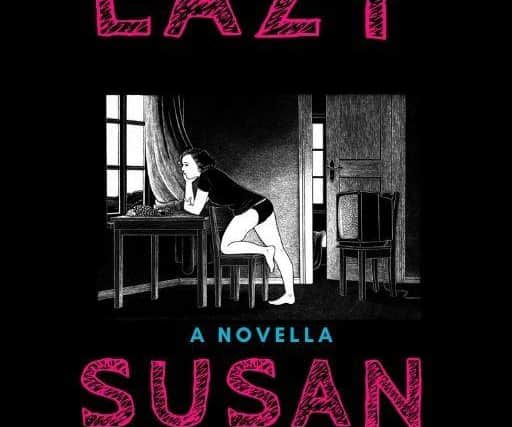Book review: Lazy Susan, by Alan Bissett


There’s something familiar about 22-year-old Susan Q Martin, the heroine of Alan Bissett’s luscious and thought-provoking new novella – his first long prose work since Pack Men, in 2011. As a powerful, proactive female protagonist conjured up by a male writer interested in the uses and abuses of sexual freedom, she has antecedents in Scottish literature – and beyond – that reach back as least as far as Alasdair Gray’s Something Leather (1990). And of course, Alan Bissett himself has form, when it comes to inhabiting a female persona and voice; his wonderful Moira Monologues, developed over a decade since 2009, involve his own total absorption – as writer and performer – into the character of Moira Bell, a working-class Falkirk matriarch and good-time girl of truly epic wit and insouciance.
Yet if there is something recognisable about Susan’s character – her sharp intelligence, her good looks, her apparent confidence in manipulating men for her own ends – Bissett’s treatment of it, during a short 150-page odyssey from a luxury hotel near Stonehaven to the heart of the Edinburgh Fringe, is both brilliantly crafted and somehow unsettling. First, he creates a unique and eloquent scripted voice for Susan, who comes from Dunfermline and, while working in a local care home, fancies herself both as a girl who can persuade men to fund her luxury weekend lifestyle, and as an increasingly powerful social media influencer; her voice is a strong and fearless contemporary Fife vernacular, powerfully captured and set down. And then, at every turn of the story, he offers the reader options as to which decision we might make if we were Susan, leading – at least in theory – to different pathways through the story.
Advertisement
Hide AdSome of Susan’s options seem fairly random; left with a couple of hours to kill in Festival Edinburgh, should she go into Henry Cellar’s Bar and have a drink, or stay in St Cuthbert’s Churchyard and smoke a joint? Yet as every human being knows, even the smallest decisions can be life-changing, particularly when we are young; there’s a sense, throughout Bissett’s novella, of parallel universes multiplying around Susan, as she chooses and chooses again, from moment to moment.


And then again, some of the choices are freighted with a more straightforward and political sense of fate; does Susan really have the confidence to step into the spotlight, reach out for fame and fortune, and shape her own fate? Or is she doomed, like so many working class women throughout history, to experience a brief youthful bloom of freedom and possibility, followed by a long life of ill-paid drudgery and unfulfilled hopes?
In the end, it’s debatable whether Bissett’s conceit of offering different paths through the story really works in any literal sense. Everyone who is drawn in by Susan’s unique voice at the outset will want to read every part of the story, and consider each of its (at least) four possible endings; nor will the order of their reading matter very much.
What the device does, though, is to make us think long and deeply about ideas of self-determination, empowerment and agency, particularly for groups that have traditionally lacked those freedoms; about how vital they are to any sense of human self-respect and equality, and yet how vulnerable they are – even pre-pandemic – not only to harsh social realities, but also to blind chance. In the end, we’re left with the feeling that we have caught Susan at a moment of freedom that may well be brief, besieged as it is by forces of class, biology, economics, pervasive technology and potential celebrity, all of which could destroy or diminish her. Yet there is a brief flash of hope, too, in one of her possible futures; the one that is most truthful, most creative, and least pretentious – and crucially, perhaps, the one most clearly driven by love.
Lazy Susan by Alan Bissett, Speculative Books, 150pp, £7.99
A message from the Editor:
Thank you for reading this article. We're more reliant on your support than ever as the shift in consumer habits brought about by coronavirus impacts our advertisers.
If you haven't already, please consider supporting our trusted, fact-checked journalism by taking out a digital subscription at at https://www.scotsman.com/subscriptions
Joy Yates, Editorial Director